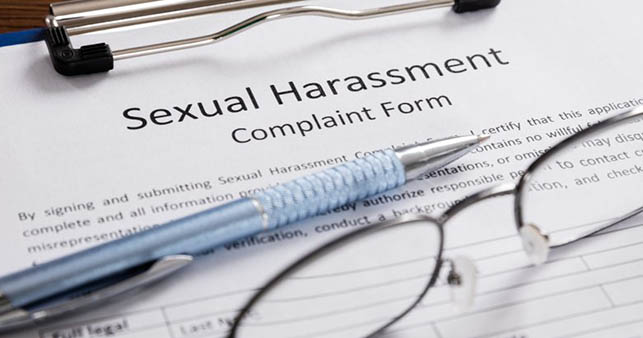
n businesses across New Zealand, the Harassment Act 1997 (the Act), defines harassment as a pattern of behaviour (two or more within 12 months) directed at a person which makes that person feel distressed or unsafe. While the Act has a definition, other types of harassment are covered by additional laws. For example, sexual harassment and racial harassment are both prohibited by the Employment Relations Act 2000 and the Human Rights Act 1993.
Examples
While not an exhaustive list, the following are some examples to observe:
• loitering near, or preventing access to the workplace
• an individual being followed or confronted
• contact being made with someone who expressly does not want to be contacted by the person
• making offensive conduct visible to a particular employee, such as online or in the lunchroom
• generally acting in way which makes a person fear for their safety, and would cause any reasonable person in the same situation to fear for their safety
Sexual harassment in the workplace
Both the Employment Relations Act 2000 and the Human Rights Act 1993 protect people from sexual harassment in New Zealand. While the Employment Relations Act 2000 makes this act unlawful in the workplace, it also makes you as the employer potentially liable. The potential to be liable exists whether it is an allegation against you, another employee, or even a customer.
While the Employment Relations Act covers employees in the workplace, the Human Rights Act 1993 goes further in not only protecting employees from sexual harassment, but also makes employers liable if one of your employees subjects anyone to sexual harassment in a work context. So, as your employees go about their duties the Human Rights Act 1993 protects volunteers, contractors or anyone else your employees interact with from being harassed in this way at work.
As an employer, if a complaint of someone being harassed is made which occurred on your workplace, or involved your staff, you are required to investigate all the facts and take steps to avoid the behaviour happening again.
Racial harassment in the workplace
Similar to the case above, racial harassment is also unlawful under both the Human Rights Act 1993 and Employment Relations Act 2000. Specifically, the Acts deem racial harassment to be using language or visual material, or behaviour, which is hurtful to a person and which expresses hostility against, or ridicules another person on the basis of race or ethnicity. The behaviour, or material, must have a detrimental impact on the person and repeated, or significant, to constitute harassment.
It is a repeated action, meaning once you become aware of an employee feeling subjected to abuse of this kind you must act quickly to investigate and limit the chances of this behaviour happening again.
For advice and support call Employsure on 0800 568 012.



